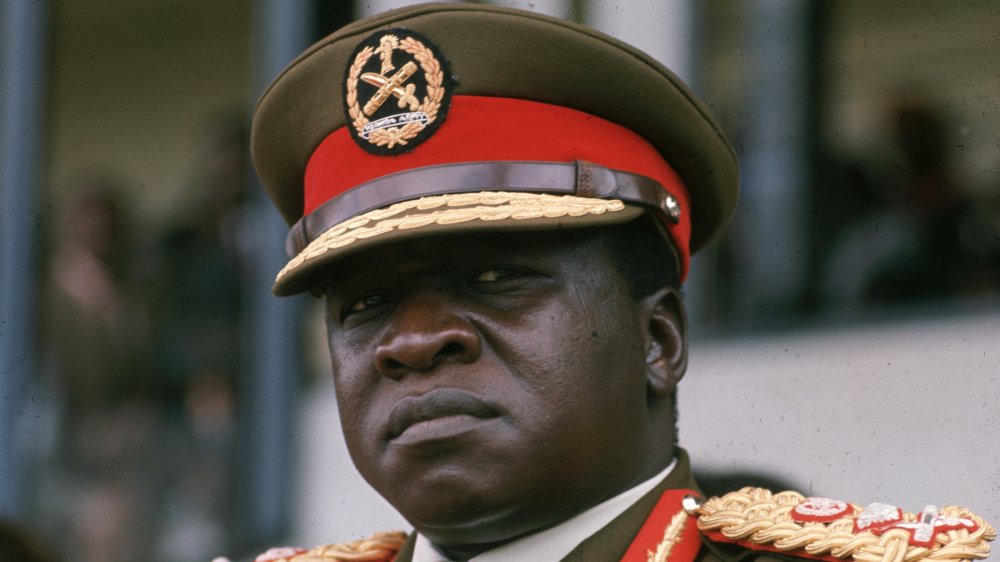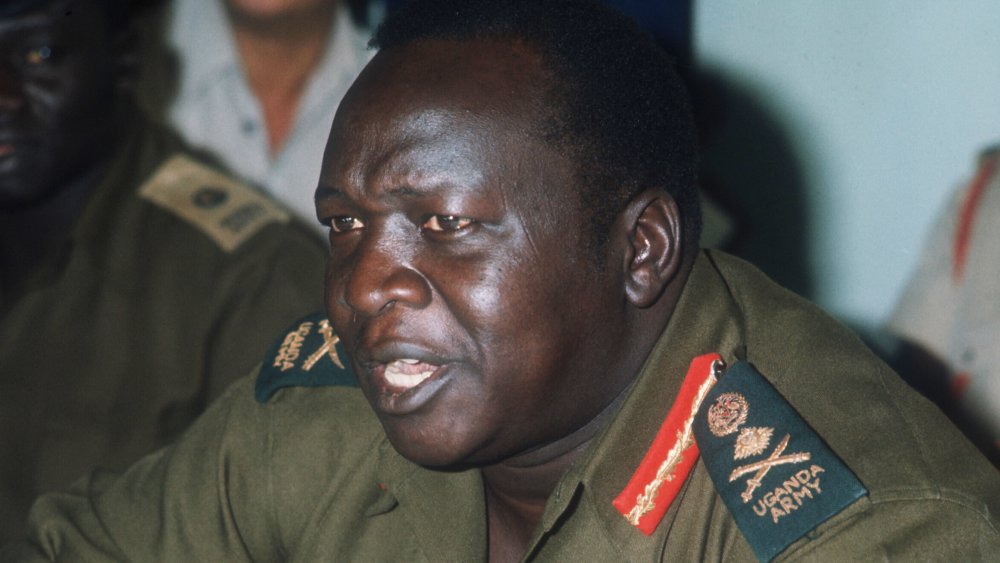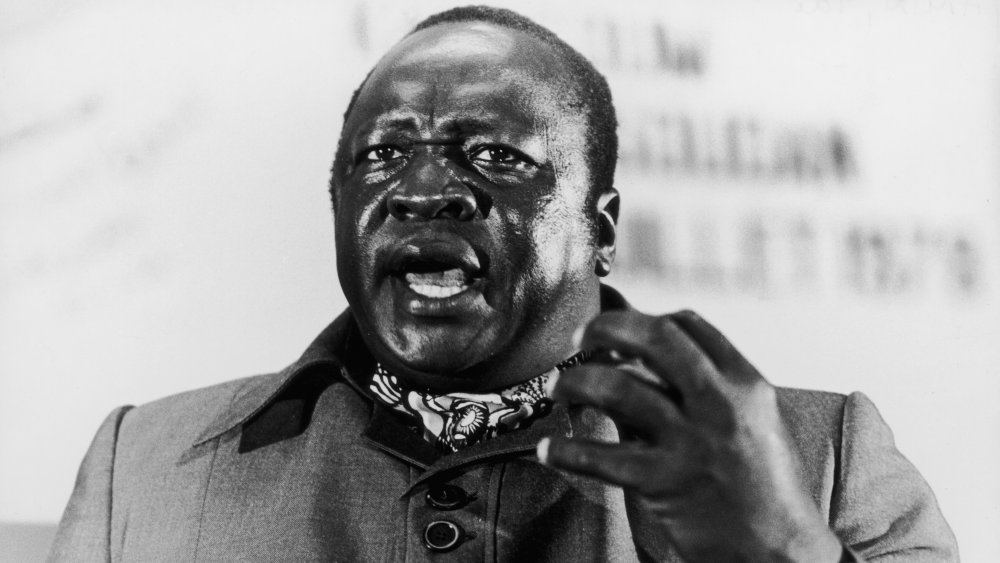Idi Amin: The Truth About The 'Last King Of Scotland'
Ugandan dictator Idi Amin was a man of many titles and epithets. According to ThoughtCo, people called him the "Butcher of Uganda." When Amin died in 2003, the BBC dubbed him "the buffoon tyrant" in a scathing obituary. The names he gave himself were far more charitable. As described in Prominent African Leaders Since Independence, Amin declared himself a "professor of geography," the "king of Africa," and pretty much the king of everywhere else. His official title was a mouthful: "His Excellency President for Life, Field Marshal Al Hadji Doctor Idi Amin, VC, DSO, MC, Lord of All the Beasts of the Earth and Fishes of the Sea, and Conqueror of the British Empire in Africa in General and Uganda in Particular."
But in his kaleidoscope of colorful labels, the one that stands out the most is "uncrowned King of Scotland," which Amin officially adopted in 1976. He played Scottish music for visiting dignitaries, offered to liberate Scotland from British rule, and wore a kilt to a Saudi royal funeral. Amin even reportedly offered to show Queen Elizabeth II all the naughty things he could do with his flesh scepter, telling her in a telex: "Dear Liz, if you want to know a real man, come to Kampala." However, beneath this flagrant nuttiness was a shrewd and vicious killer, who allegedly kept the heads of his enemies in a refrigerator.
A not-so-great Scot
If you saw the spellbinding portrayal of Idi Amin's outlandishness in The Last King of Scotland, or read any of what was written about him above, you might get the distinct impression that the dictator was too loony to see the Forest Whitaker for the trees or notice that a thicket of delusions were invading his brain like kudzu. In 2003, though, former BBC Africa correspondent Brian Barron wrote that the Idi Amin that he knew "was by no means stupid." Barron remembers him as "an obvious bully who was capable of menacing charm." And he was utterly ruthless and obscenely lethal.
Born in 1925, Amin had a basic education at best, via History, but he was very well-versed in hurting and murdering people. He had quickly risen through the ranks of the King's African Rifles (KAR), fighting in multiple conflicts and attaining the rank of commander in 1966. He also brutalized people in the boxing ring, becoming Uganda's light heavyweight champion for a nine-year stretch lasting from 1951 to 1960.
In 1971, Amin seized power from Milton Obote, the first prime minister of the newly independent Uganda. He quickly used his knack for brute force to devastating effect.
The slayer king
As History details, Idi Amin kicked off his regime with the mass slaughter of Christian tribes who had placed their faith in his ousted predecessor, Milton Obote. The BBC notes that Obote might have been a bigger killer than Amin, but the latter was more flamboyant with his iron-fistedness. Amin also persecuted the nation's Asian population, about 50,000 to 70,000 people. Making them economic scapegoats, he expelled the Asians from the country. Other enemies were never permitted to leave.
Using his secret police, the State Research Bureau (SRB), Amin imprisoned people in "concrete dungeons," writes former BBC correspondent Brian Barron. The suffering of the inmates was evident in the blood-drenched floors and the bodies that accompanied it. Whether or not Amin lost his grip on reality the way some believe, he nonetheless lost his hold on his troops. He accused Tanzania's president of trying to incite and uprising and mounted an ill-fated invasion of Tanzania. His troops retreated, and he had to flee Uganda. Amin spent the remainder of his life in luxurious exile, living comfortably in Saudi Arabia until he died in 2003.


